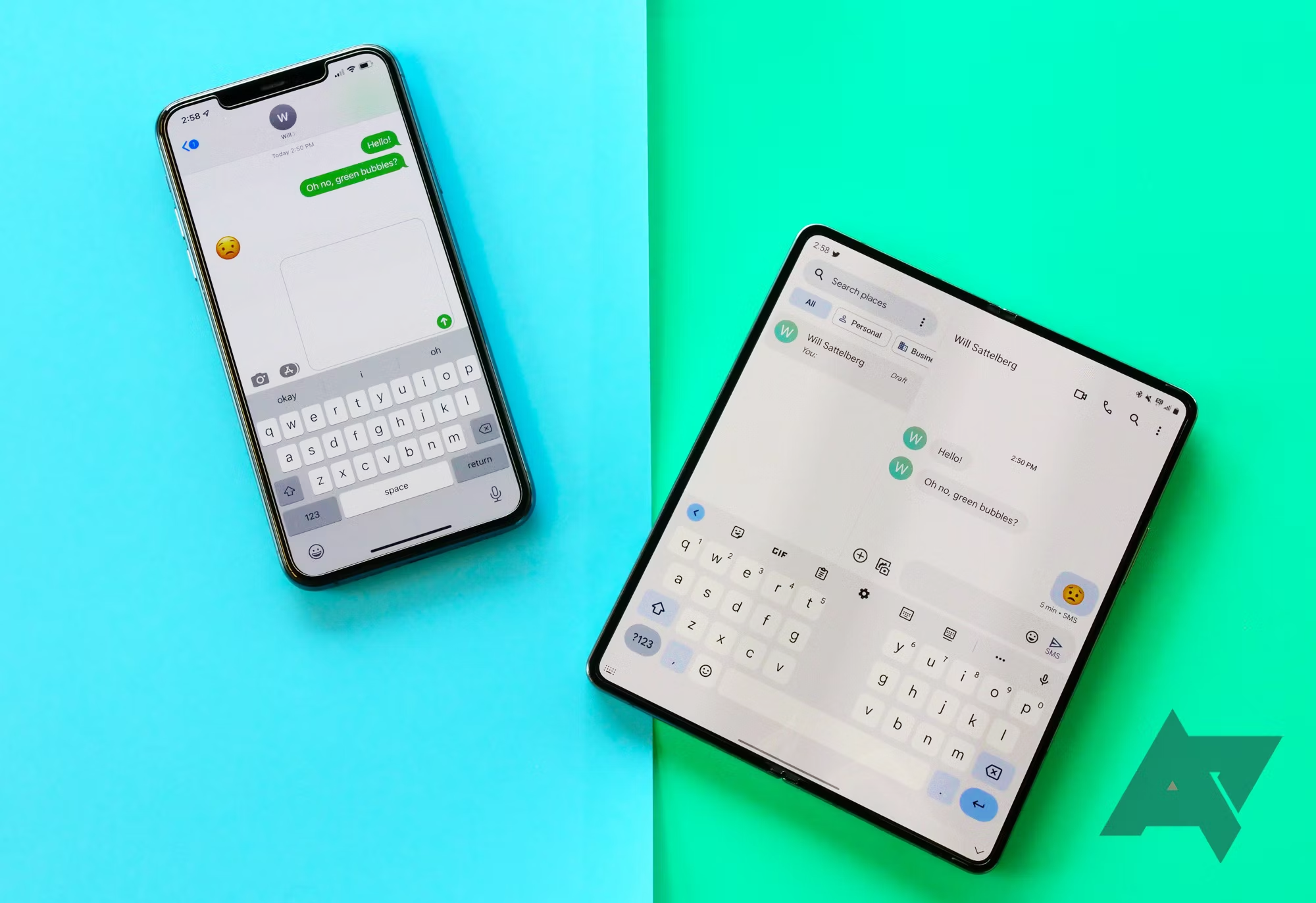Last week, the world watched as Apple announced its newest phones. As silly — though no less intriguing — as the Dynamic Island might be, the iPhone 14 series fails to fix one of the biggest issues with modern smartphones: messaging. A day after Apple's keynote, Tim Cook took the stage at Vox's Code Conference, confirming the company's position on RCS: it's not interested, and if you want to send your mom high-res videos, you're better off buying her — or yourself — an iPhone.
After months of increasingly desperate pleas from Google, it solidifies the state of cross-platform messaging as a disastrous mess in the US. Cook's comments are a spit in the face, not just to Android users, but to any iPhone user who wants to text their friends without worrying about blue and green bubbles. That's why it's finally time to push for your iOS-based friends and family to abandon their blue bubble group chats and move to a third-party chat platform.
Let me say this upfront: this problem is absolutely a US-centric issue. I'm fully aware that iMessage holds virtually no importance throughout most of the rest of the world. It's a problem that originated well over a decade ago, when US carriers included SMS for free while other countries continued to charge additional fees, creating the conditions for services like WhatsApp to balloon in popularity while remaining a minuscule player stateside. Unfortunately, I live in the US, so this struggle is all I know. To those fellow US-based readers — Android and iPhone users alike — it's time to join together and follow the rest of the world's lead. If persuading Apple to adopt RCS won't work, you must persuade your friends to download a new app.
Don't get me wrong — this will be an uphill battle. iPhones are immensely popular in the US, and that user base is only growing. iMessage isn't just a crucial lock-in feature — it's also a way to get people to switch away from Android. Tim Cook said it himself on stage this week: if you're sick of receiving or sending low-res videos, if you're sick of group chats breaking, if you're sick of being called a "green bubble," Apple's solution is for you to buy an iPhone.
And I hear you. You've gone through this before. You tried it in 2012 when you persuaded your family to jump on Hangouts. You tried it again in 2016, convincing some of your friends to download Allo from the App Store. You called both of them the future of messaging. And in both cases, you were wrong.
Now that Google seems to be sticking with a messaging service — and a decent one at that — it's disappointing to throw in the towel. RCS isn't perfect, but it's as close to the "iMessage for Android" that people have been begging for for years. It works with your phone number, it supports nearly every Android device, and it's virtually automatic. But outside the US, no one really cares about RCS. And to even matter in the US, RCS needs Apple to adopt it. Otherwise, we're stuck with the same issues we've dealt with for a decade: broken group chats and a lack of modern messaging features. Without some kind of forceful intervention — be it on the part of the government or carriers — Apple will not add RCS support to iMessage in the foreseeable future.
So, it's time to give up on the dream and make one last push for your friends and family to move to a cross-platform chat service. Thankfully, countless messaging apps are widely available on both app stores. If you don't mind using Meta products, Messenger, WhatsApp, and Instagram are right there. Your mom's probably on Facebook anyway, so persuading her to text you through Messenger won't take much effort. Don't want to give Meta access to your life? Sign up for Signal. I've been using it for a couple of my group chats for the last few months, and it's great. It's basic enough that anyone can learn how to use it, even those who haven't used anything but iMessage since the days of sliding QWERTY keyboards. Get your friends to jump on Discord or Telegram. All of these platforms are accessible on iOS and Android and can sync with web-based or desktop clients too. Crucially, they're established — unlike Hangouts and Allo, they aren't going anywhere.
It's hard work. It's annoying. You'll basically have to pester and persuade the people closest to you in your life, all in an effort to fix a problem we have little to no control over. But that's just it — we can make these changes in our social circles just by begging our friends and family to download one final messaging app. And the timing is perfect. More than ever, iPhone users seem to be aware of the issues when messaging Android users and might be willing to change their habits to avoid future headaches. If there's one benefit to Google's ongoing campaign, here it is.
So, one last time. Apologize to your loved ones for making them try out Allo all those years ago — honestly, they deserve that apology (Allology?) — and promise them that this will be your final appeal. No future apps, no Google announcements. Jump on WhatsApp, Signal, or any application of your choice, and leave the green bubble conversation in the past. We'll all be better off for it.



